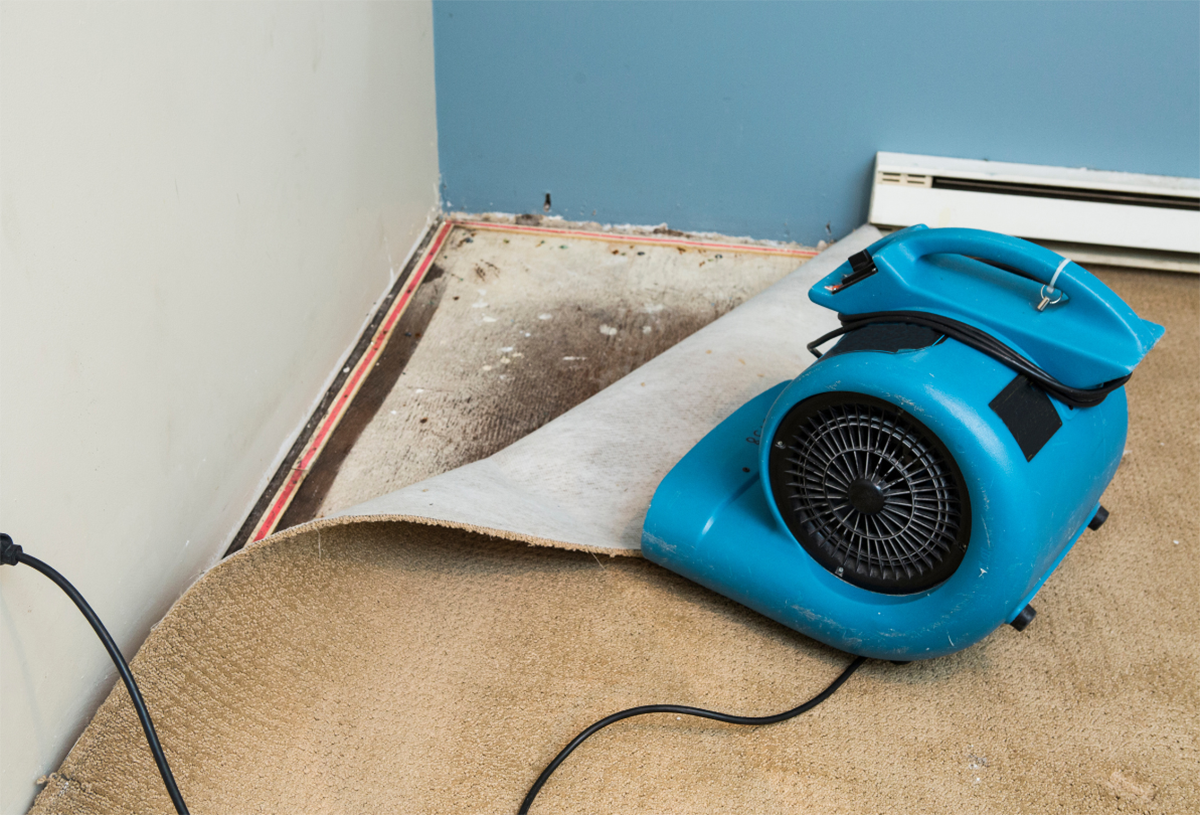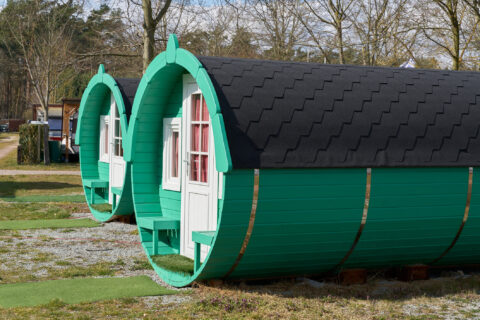Water damage might sound more benign than other types of property damage, but it causes more problems than you’d think for a property manager.
While it’s true that water itself isn’t dangerous, it can lead to very dangerous problems almost immediately. If you’re unfortunate enough to be a victim of water damage in rental property situations, here’s what to do.
What Is Water Damage? Why Is It Dangerous?
Water damage to a property happens when water goes places it shouldn’t. Sometimes, the water comes from the outside (like during a flood, severe storm, etc.). Other times, it happens due to a problem with the home’s plumbing system or structure. Here are some of the more common causes of water damage in rental property:
- Leaks in pipes and other parts of the plumbing
- Negligence on the part of the renter (like leaving faucets running, opening windows during storms, etc.)
- Poor drainage
- Roof leaks
- Flooding
- Sewage backups
- Excessive condensation
- Frozen pipes
- Problems with the HVAC system
Water damage can start causing problems almost as soon as it happens. For instance, once part of a home has been damaged by water, mold can start growing within 24 to 48 hours. Mold has the potential to cause severe health issues, especially in people with allergies and asthma.
However, mold isn’t the only danger of water damage. Your home also can be affected by extensive (and expensive!) structural damage. Water and electricity don’t mix well, so it can also cause electrical hazards. Water damage also attracts moisture-loving pests like cockroaches, earwigs, and silverfish.
Who Should Fix Water Damage?
Generally speaking, it’s a property owner’s responsibility to provide a safe, habitable living space — even if it’s a temporary rental. This means that in most cases, the responsibility for fixing water damage falls on the owner.
Water damage to a short-term rental can be fairly expensive to fix out of pocket. In many cases, you can file a claim with your insurance. Not all short-term rental insurance policies cover water damage, so make sure you read and understand your policy.
Safely offers customizable insurance plans so you can specify the level and type of coverage you want. When you make sure you have adequate coverage for water damage, you can rest assured that your property is protected.
That said, it’s not always the property owner’s responsibility to cover water damage. If the damage was a direct result of a renter being negligent, the renter may be the one who’s legally required to pay. This will be handled on a case-by-case basis.
What to Do if Your Property Has Water Damage
Are you wondering how to fix water damage in rental property settings? Regardless of who’s responsible for paying for water damage, it’s important to act quickly if your home is affected. The sooner you take action, the less damage your home is likely to sustain. Here’s what to do.
Document First
In the case of water damage in apartment and home settings, you’ll need to pay for the initial repairs and then submit a claim to your insurance company. Make sure to take many photographs and even videos to show the insurance company how much damage occurred.
Plan to call your insurance company as well. Before you start contacting repair and cleanup specialists, it might be helpful to know what your insurance company covers and doesn’t cover.
Fix the Issue
Once you’ve documented the source and extent of the water damage, you’ll need to work quickly to solve it. The first step is to turn off the breaker box if it’s in a dry area of the house. Having live electricity in a home with water damage puts you at greater risk of electric shock.
Next, you’ll need to fix the source of the problem. It wouldn’t make sense to do a full cleanup job on a roof leak without fixing the leak itself.
You might be tempted to fix the issue yourself to save money. Before you do so, take a close look at your insurance policy. Some policies require you to hire professionals for all repairs if you want to be reimbursed.
Hire Cleanup or Mitigation Specialists if Needed
What is water damage remediation like? Unfortunately, the repairs for water damage in apartment and rental settings don’t usually end with fixing the source. Your rental property might require several different repairs, such as the following:
- Mold remediation
- General cleanup
- Removal and replacement of drywall and other materials that can’t be saved
- Time to allow the material that can be saved to dry out so it doesn’t grow mold
It’s incredibly important to do a thorough job here. If damaged materials aren’t replaced or adequately dried, you may run into mold and pest issues down the line.
Help Your Home Dry Out
When it comes to water damage, you can’t be too careful. It’s always a good idea to hire professionals to handle most of the cleanup and remediation. However, you can still take steps to make doubly sure the water damage doesn’t continue to damage your home, including the following:
- Use a wet/dry vacuum on flooring (especially carpet)
- Remove any items that have been completely drenched — you don’t want them leaking water into the walls or floor
- Put floor fans close to affected drywall
- Place dehumidifiers around the house
- For books and papers, either dry them page by page in front of a fan or seal them in plastic bags and put them in the freezer for now.
In some cases, the water damage may be minimal enough that measures like these are all you need. However, you should always get the opinion of an expert. Severe water-damaged wood that isn’t dealt with can rot and eventually collapse.
File a Claim With Your Insurance Company
Throughout the remediation process, make sure you keep meticulous records of the professionals you hire and all expenses. You’ll need to file a claim to get reimbursed. This includes taking clear photos of the damage to submit with your claim.
Keep Your Properties Safe With Safely
You don’t want to wait until your rental property has been damaged to find out you have no water damage coverage. Fortunately, Safely can help with that.
With us, you can choose a custom policy that takes care of everything you need — and nothing you don’t. Safely makes it easy to protect your rental properties from water damage and other hazards. Get in touch for your free quote today.







